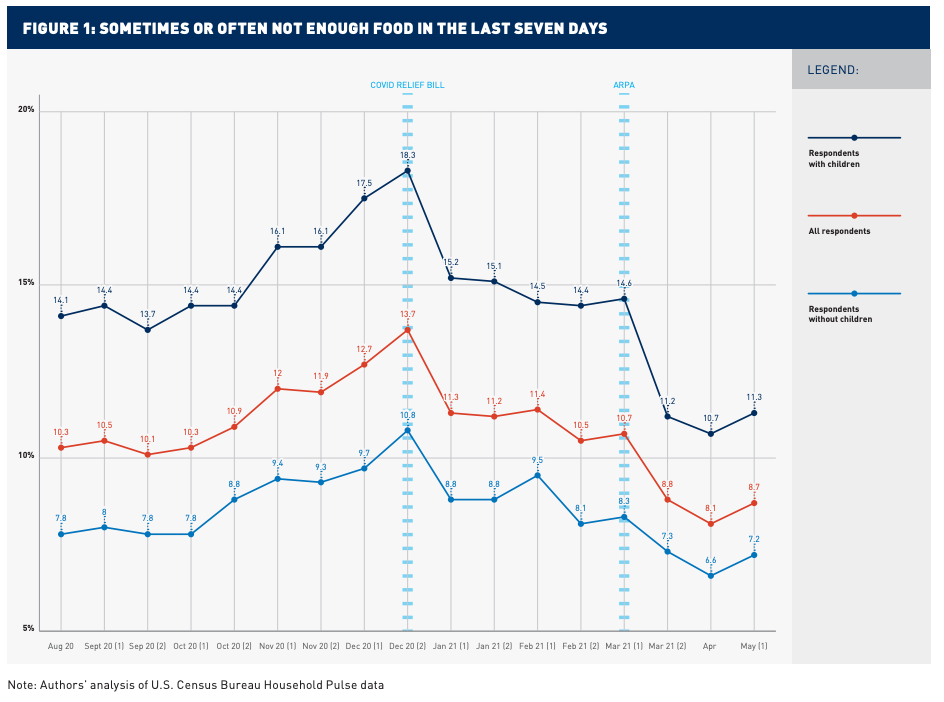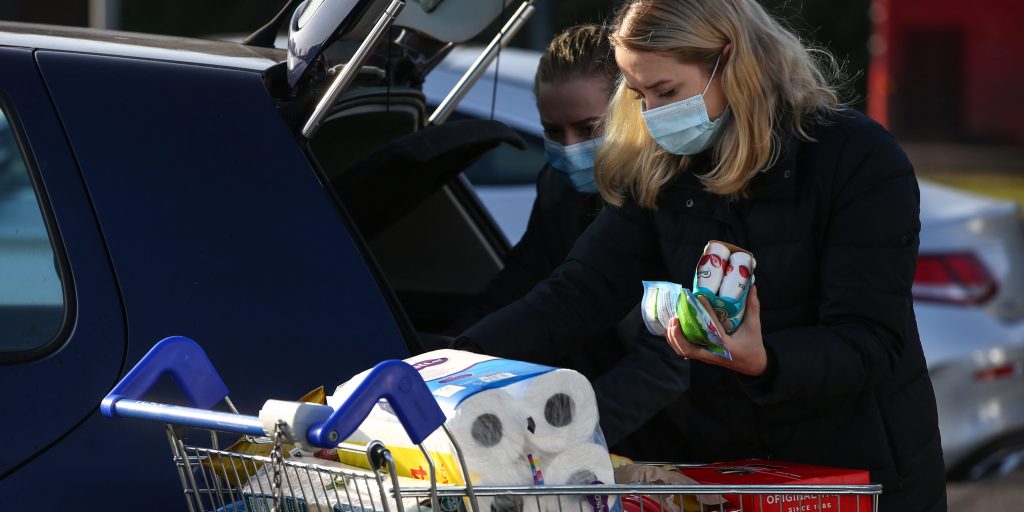
- A University of Michigan study found stimulus payments were effective at staving off economic pain.
- Gauges of food insecurity and financial instability plummeted after checks were sent in December and March.
- The payments' delivery even coincided with broad improvements in the mental health of recipients.
- See more stories on Insider's business page.
New analysis suggests that relief payments included in Congress's sweeping stimulus were highly effective at supporting Americans and easing various stresses through the pandemic.
The pandemic-era stimulus checks weren't the first instance of the government issuing relief payments, but the amount of cash sent directly to Americans over the past year is unparalleled. Millions of Americans received $1,200 payments from the March 2020 CARES Act, another $600 check from President Donald Trump's late-2020 package, and a $1,400 payment from Democrats' March stimulus.
The payments were among the less-studied elements of the various relief plans, but a study by Patrick Cooney and H. Luke Shaefer at the University of Michigan found the checks were helpful in several ways. The researchers cited data from the Census Bureau's Household Pulse survey.
For one, food shortages fell sharply after the December stimulus's passage and again after the American Rescue Plan Act was approved in March. The share of Americans saying they sometimes or often lacked sufficient food fell to 8.7% by early May from a late-December high of 13.7%. For households with children, the share fell to 11.3% from 18.3%.

University of Michigan
The second and third relief payments also padded against financial concerns. Roughly 10% of Americans said it was "very difficult" to pay for usual household expenses in late May. That's down from 17.8% in December 2020. The proportion fell to 13.5% from 23.1% for respondents with children.
Households earning less than $25,000 saw the largest drop in financial instability over the period, but those earning less than $49,000 also saw notable declines.
Recipients' mental health also improved markedly in the weeks after checks were sent out. The share of Americans saying they felt anxious for several or more days in a week fell to 52.8% last month from 68.6% in late December.
Similarly, the proportion of respondents saying they felt symptoms of depression for several or more days of the week fell to 46% from late-2020 highs of 59.4%.
To be sure, sentiments broadly improved through the spring as the country emerged from the worst phase of the pandemic. Vaccination led daily COVID-19 case counts to plummet, and the easing of lockdown measures brought back a sense of normalcy after a dire winter.
Yet when considered alongside data on food shortages and financial insecurity, the checks seemingly made significant positive impacts on Americans' lives. Similarly, in the period between March 2020 and December 2020, gauges of economic hardship worsened amid soaring COVID-19 case counts and the gradual exhaustion of CARES Act relief.
The stimulus checks' broad-based, rapid, and cash-based nature made them far more effective forms of economic support during the pandemic, the researchers said. The checks supported needs ranging from food scarcity to housing payments, and widespread eligibility matched the widespread fallout felt throughout the country.
"The success of this approach is worth learning from, and building off of, in the months and years ahead," the team added.
Dit artikel is oorspronkelijk verschenen op z24.nl

